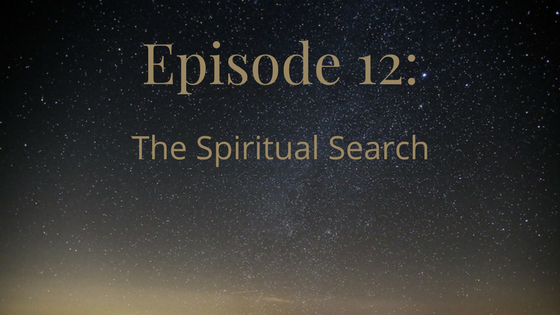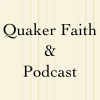The Spiritual Search

Today’s reading from Traditional Quaker Christianity is from Barclay’s Apology (Freiday’s 20th century version), on how a spiritual search begins. Barclay says a person goes looking for God when “his conscience brings about a sense of his own unworthiness.”
Beginning the spiritual search
For both Micah and Mackenzie, a need for community (if you do outreach for your church or meeting, give that a listen too) came first, though. We both spent time in meetinghouse libraries, but it was recognizing sin—not specifically our own, but the concept in general—that was a major step in a move toward deeper spirituality. It’s hard to have a sense of your own sinfulness if you don’t believe there’s such a thing as sin!
Barclay says that a person then “desires to be freed from his disordered passions and lusts and to find quietness and peace in the certain knowledge of God.” We talked about how this “disorder” applies to the way we spend our time (ie, a lust for leisure). What are our priorities? John Woolman realized at a certain point that his priorities were wrong. He was spending too much time at work, and his home and prayer life were suffering for it. So, he sold off part of his business. His view was that the only reason the wealthy got to have as much leisure as they did was because the poor spent so much time doing things for the rich. Therefore, the rich were hurting the poor’s spiritual lives.
We then talked about how difficult it can be in the modern day to do what Woolman did. In the US, healthcare is tied to having a full-time job. We can’t scale down from a full-time job to part-time, even if we’re doing well-paid work, because we would lose healthcare. Micah noted that if we were really living out the Kingdom of God, there’d be enough to go around that it wouldn’t be a problem. However, we don’t know of any Quaker communities that actually are sharing their abundance (whether by creating group insurance plans or by pooling money for each others’ medical bills) the way the Amish and Bruderhof do.
The right track
Barclay next talks about how it can be easy to start off on the wrong path and difficult to change courses later. “If he centers himself on certain principles at that state, it will be very difficult to alter these opinions no matter how wrong they maybe.” An example of this would be having a political opinion that one is forced to change after prayer and a spiritual leading. It can be hard to find the willingness to change that opinion. Micah points out that early Friends seemed to regard not wanting to do something as the surest sign it’s a real leading.
Spiritual finding?
While it’s common in other Christian denominations to hear people give their testimony (story of transformation through faith), it’s rare for Liberal Quakers. On page 152 of his Introduction to Quakerism, Pink Dandelion talks about the “absolute perhaps” of liberal-Liberal Quakers:
Liberal-Liberal Quakerism is not just about the possibility of seeking, it is about the certainty of never finding.
How about you? Do you have a testimony to share?
References
- Barclay’s Apology, Proposition 1
- A Living Faith by Wilmer Cooper
- Introduction to Quakerism by Ben Pink Dandelion
- Journal of John Woolman
- Monty Python and the Holy Grail
Podcast: Play in new window | Download
Subscribe: Apple Podcasts | Email | RSS
